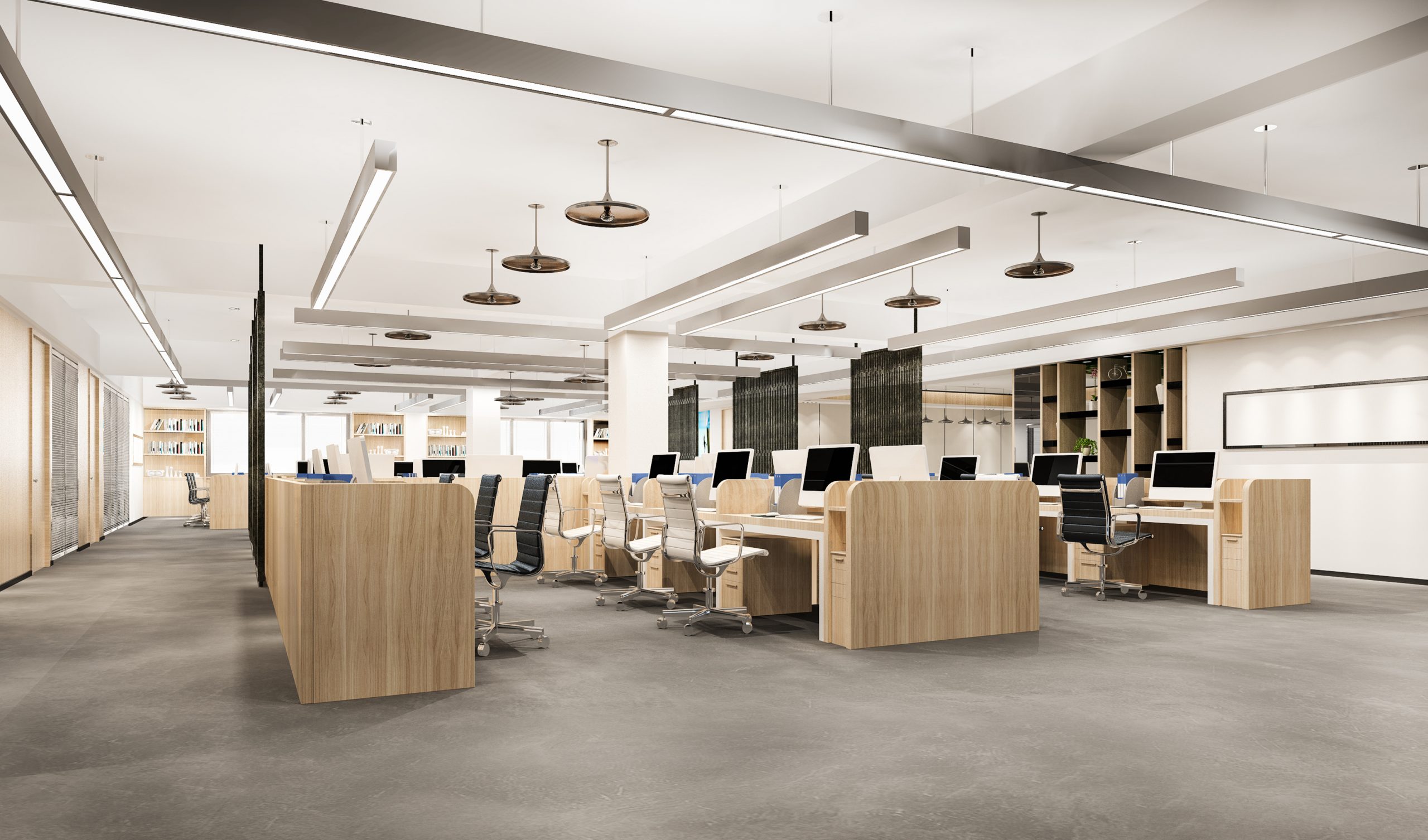- Advice
- Offices

To Rent or Own Office Space: A Decision-Making Guide
Exploring the Key Considerations to Help You Determine Whether Renting or Owning Office Space is the Best Fit for Your Business Needs.
One of the biggest decisions business owners face when it comes to office space is whether to rent or own. Both options have their advantages and disadvantages, and choosing the right one for your business can be challenging. In this post, we’ll explore the pros and cons of renting vs. owning office space to help you make an informed decision.

Upfront Costs:
When it comes to upfront costs, renting is generally the less expensive option. You’ll typically need to pay a security deposit and the first month’s rent, but you won’t be responsible for any major expenses like a down payment, closing costs, or renovations. On the other hand, owning office space requires a significant investment upfront. You’ll need to come up with a down payment, pay closing costs, and potentially invest in renovations or upgrades.
Flexibility:
Renting office space provides more flexibility than owning. If your business grows quickly, you can easily move to a larger space without having to worry about selling a property. Additionally, if your business needs change, you can easily move to a new location or adjust your lease terms. Owning, on the other hand, provides less flexibility. You’ll be tied to the property for the long term, and if your business needs change, it may be more difficult to sell or rent out the space.
Control:
Owning office space provides more control over the property. You can make changes and upgrades to the space as needed, and you can build equity over time. Additionally, owning can provide tax benefits, such as deductions for mortgage interest and property taxes. When you rent, you don’t have as much control over the property. You’ll need to get permission from the landlord to make changes or upgrades, and you won’t build equity in the property over time.
Maintenance:
When you own office space, you’re responsible for all maintenance and repairs. This can be costly and time-consuming, especially if you own an older building. When you rent, the landlord is typically responsible for maintenance and repairs. This means you won’t have to worry about things like HVAC repairs, roof maintenance, or landscaping. However, you may be responsible for minor repairs like fixing a leaky faucet or replacing light bulbs.

Long-Term Costs:
When you rent office space, you’re paying for the use of the space, but you don’t have any equity in the property. When you own, you’re building equity, but you’re also responsible for ongoing expenses such as property taxes, insurance, and maintenance. You’ll need to weigh the long-term costs of each option to determine which is best for your business. If you plan to stay in one location for a long time, owning may be a better option, but if you anticipate moving in the near future, renting may make more sense.
Conclusion
Deciding whether to rent or own office space is a complex decision that requires careful consideration of your business needs, budget, and long-term goals. By weighing the pros and cons of each option, you can make an informed decision that will benefit your business in the long run. Whether you choose to rent or own, remember that your office space is an important investment in the success of your business.One of the biggest decisions business owners face when it comes to office space is whether to rent or own. Both options have their advantages and disadvantages, and choosing the right one for your business can be challenging. In this post, we’ll explore the pros and cons of renting vs. owning office space to help you make an informed decision.

Upfront Costs:
When it comes to upfront costs, renting is generally the less expensive option. You’ll typically need to pay a security deposit and the first month’s rent, but you won’t be responsible for any major expenses like a down payment, closing costs, or renovations. On the other hand, owning office space requires a significant investment upfront. You’ll need to come up with a down payment, pay closing costs, and potentially invest in renovations or upgrades.
Flexibility:
Renting office space provides more flexibility than owning. If your business grows quickly, you can easily move to a larger space without having to worry about selling a property. Additionally, if your business needs change, you can easily move to a new location or adjust your lease terms. Owning, on the other hand, provides less flexibility. You’ll be tied to the property for the long term, and if your business needs change, it may be more difficult to sell or rent out the space.
Control:
Owning office space provides more control over the property. You can make changes and upgrades to the space as needed, and you can build equity over time. Additionally, owning can provide tax benefits, such as deductions for mortgage interest and property taxes. When you rent, you don’t have as much control over the property. You’ll need to get permission from the landlord to make changes or upgrades, and you won’t build equity in the property over time.
Maintenance:
When you own office space, you’re responsible for all maintenance and repairs. This can be costly and time-consuming, especially if you own an older building. When you rent, the landlord is typically responsible for maintenance and repairs. This means you won’t have to worry about things like HVAC repairs, roof maintenance, or landscaping. However, you may be responsible for minor repairs like fixing a leaky faucet or replacing light bulbs.

Long-Term Costs:
When you rent office space, you’re paying for the use of the space, but you don’t have any equity in the property. When you own, you’re building equity, but you’re also responsible for ongoing expenses such as property taxes, insurance, and maintenance. You’ll need to weigh the long-term costs of each option to determine which is best for your business. If you plan to stay in one location for a long time, owning may be a better option, but if you anticipate moving in the near future, renting may make more sense.
Conclusion
Deciding whether to rent or own office space is a complex decision that requires careful consideration of your business needs, budget, and long-term goals. By weighing the pros and cons of each option, you can make an informed decision that will benefit your business in the long run. Whether you choose to rent or own, remember that your office space is an important investment in the success of your business.
-
What is a hybrid workplace model and how does it work?
23 November 2022 -
Why holiday spirit is so important at the workplace?
12 December 2023 -
6 ways to make an office space visually appealing.
30 January 2023 -
Color Trends in Interior Design in 2023
06 July 2023 -
The Role of Technology in Modern Office Spaces
23 July 2024 -
What makes the perfect office?
15 April 2024 -
Работа од дома или работа од канцеларија?
01 February 2024 -
Dilemma: New vs Old Construction
10 January 2023 -
Picking the Perfect Location for Your Business
07 November 2023 -
Modern office spaces trends
13 September 2023
















